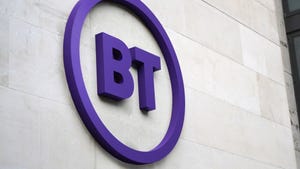It's not really a core telecoms story, but Amazon's launch of the Kindle wireless ebook this week is interesting nonetheless. On the surface, the whole 'subscription free' model looks like a winner - it works right out of the box and the user only pays for what they use. This element is also interesting for a second reason, and that's because it rolls the cost of the delivery in with the cost of the product. Essentially, the content provider pays the carrier the transfer costs. Which is really the way it should be.
November 20, 2007
It’s not really a core telecoms story, but Amazon’s launch of the Kindle wireless ebook this week is interesting nonetheless. On the surface, the whole ‘subscription free’ model looks like a winner – it works right out of the box and the user only pays for what they use. This element is also interesting for a second reason, and that’s because it rolls the cost of the delivery in with the cost of the product. Essentially, the content provider pays the carrier the transfer costs. Which is really the way it should be.
Some people say that this model is where the carrier becomes a dumb pipe and goes against the whole controlling the value chain strategy, but in reality, this is more like a ‘smart pipe’ model. In this case, Sprint is connecting the end user with the content he or she wants, and is getting a cut of the revenue stream, without interfering and taking over the whole chain.
Unfortunately, once you realise that there is a subscription model if you want access to blog and news etc. then the offer starts to look less attractive. I mean, blogs are free, so how can Amazon charge for them? Because it has to pay the data rates.
All in all, the Kindle model is far from perfect, but it shows the potential of things to come. Over the next couple of years, the market will probably go mobile internet terminal crazy. Nokia’s already got some devices out, Intel and its partners are working on something, and (hopefully) the hardware for Amazon’s Kindle will also evolve.
So at the moment it downloads books. Amazon already sells digital movies and MP3s so why not start offering them via Kindle either on a pay per item or subscription basis? Ok the larger file size is an issue and I can’t help wondering if Sprint’s WiMAX strategy was key to the Amazon deal. If so, Jeff Bezos is probably having to rethink that one now.
And of course, Amazon’s already got a web shop, which Kindle can alrady access, so why not open up the whole shebang and let people buy groceries and beauty products etc. from the device. The form factor of Kindle is not very suited to voice, but in terms of the mobile internet it might just be that its successors have the potential to set off another bomb in the wireless industry, just like Google (might).
The whole Kindle concept seems to have met with mixed reactions, but I quite like it. Obviously it has to overcome the same tangibility problems that CDs did when digital music was introduced – there’s nothing that compares to the ‘feel’ of a real book – but when I think about my tiny London flat, the bookshelf and all the books that live in it, is probably the single biggest piece of furniture. And the books themselves are quite cumbersome to move in large numbers and they seem to keep multiplying. So the idea of a single device which stores hundreds of books at a time is tempting. As it is, I can’t remember the last time I took a CD off the shelf either. Everything’s on the laptop, so I can pipe it out through the stereo or put it on the iPod. That said, even though my music collection is largely digital, I’ve still got all my old CDs.
Read more about:
DiscussionAbout the Author(s)
You May Also Like








.png?width=300&auto=webp&quality=80&disable=upscale)


_1.jpg?width=300&auto=webp&quality=80&disable=upscale)


.png?width=800&auto=webp&quality=80&disable=upscale)